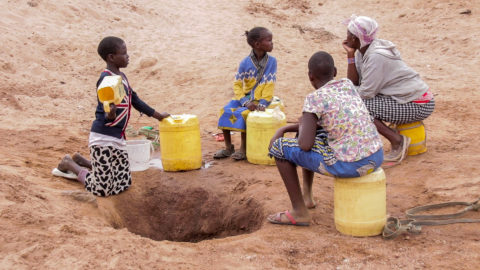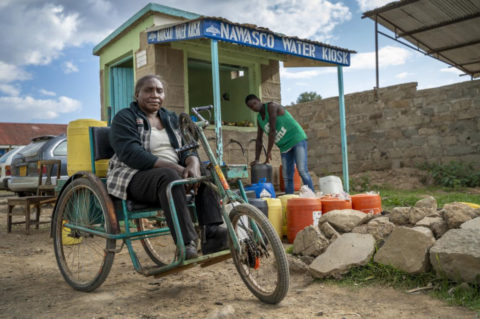
Leaving No One Behind: Wetlands Action for People and Nature
-
Community resilience
With droughts and flooding becoming more severe and frequent in parts of Africa because of climate change, the need for social inclusion in water resources management (WRM) and Water, Sanitation, and Hygiene (WASH) cannot be overstated.
This is particularly so in the marginalised and semi-arid parts of northern Kenya such as Laikipia, Samburu, Isiolo, Marsabit, and beyond where wetlands are few making water a scarce commodity, pastoralism is the main economic mainstay, illiteracy and poverty levels are high and cultural norms undermine women in the family, community and political decision-making processes.
In these regions, girls and their mothers bear the responsibility of fetching water for household use. Prolonged droughts force girls to skip school, as they must spend long hours in search of water. Cut off from education, they are thrust into the traditional roles that subjugate the pastoralist and marginalised woman, once more triggering a generational cycle of poverty.

These girls, like their mothers, also grapple with maintaining menstrual hygiene without water, a challenge compounded by poor access to sanitary towels. There is evidence, too, that girls searching for water far from home are exposed to sexual exploitation, violence, and teenage pregnancies.
Helen Gathogo, who is executive director for One More Day for Children Foundation in Kenya says, “Poverty, illiteracy, abuse of rights and reproductive health issues affecting girls are linked to inaccessibility to clean water.”
Women, Wetlands, and Water
The challenge is even more difficult for mothers. In their role as caregivers, subsistence farmers, and custodians of livestock, they are the major water users. Droughts mean less food and water for domestic use. Women, girls, and children also suffer the most when water-related conflicts and human-wildlife conflicts, that are exacerbated by climate change, arise.
The plight of mothers living with disabilities and mothers with special needs children is grimmer. While access to water is a challenge for them even at the best of times, heightened drought conditions not only compromise their wellbeing but also exposes both the women and or their children to sexual exploitation and violence.

“In urban areas, women with disabilities not only have to buy water but also pay someone to carry it for them. In semi-arid areas, boreholes are often way out of reach for them,” states Valentine Keraita, Chairlady of Laikipia Women with Disability Amplified Voices (LAWADAV).
These issues underline the need to train women and persons living with disabilities on their rights and responsibilities as water users and empower them to lobby local water user associations and government authorities. To ensure social inclusion, vulnerable groups must be represented in community and local government where WRM and WASH projects are discussed, planned, budgeted for and implemented.
“After being established by United Disabled Persons of Kenya and Watershed partners including Wetlands International, LAWADAV members were trained on lobbying and advocacy. Participation of women with disabilities in water management is bearing fruit here. A case in point is Matanya centre in Nanyuki where a water kiosk was placed next to the home of a woman living with a disability. Through our lobbying efforts, we now have representation in two boards that govern water sector in Laikipia County,” says Keraita.
“We cannot emphasise enough that challenges facing women and vulnerable groups in these regions should be tackled using water because effective water resources management has an impact on sanitation and hygiene, food availability, and the quality of livelihoods,” adds Gathogo.
– Elizabeth Wamba
